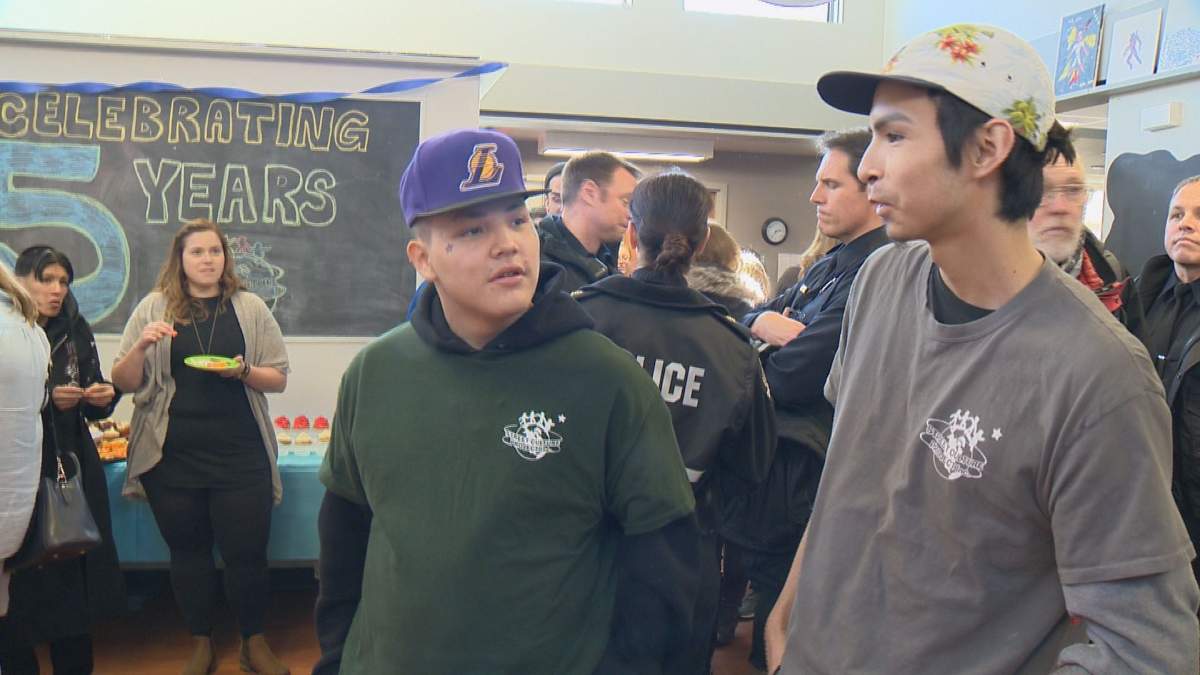Saskatchewan’s first emergency youth shelter, Downtown Browne’s, is marking its fifth anniversary.

“I would like to say this is a celebration, but it isn’t really. It’s more an awareness of the challenges we still have in this community,” Street Culture Project founder and CEO Kim Sutherland said.
Since Downtown Browne’s opened, Sutherland said over 550 kids have stayed at the facility, and thousands have accessed services.
The average stay is about 30 days.
Matt Holzer was one of the early people to stay at Browne’s. The 20-year-old first started using Street Culture programming four years ago.
“They helped me a lot by mentoring me and being one of the only positive people I was seeing at the time,” Holzer said.
At Downtown Browne’s, young people have their needs assessed and they’re given support. The end goal is to get them to a place where they can live with stability.
“What we’re missing are the resources to move the young people to. We need open landlords, homeowners who have basement suites to work with us to take the stable young people who have come through our program and get them into stable housing,” Sutherland said.

Get breaking National news
Street Culture will soon be opening an additional location on Albert Street, which will include some affordable housing units for young people.
Before going to Street Culture Holzer said he had unhealthy relationships with his family, addiction issues, and had run into trouble with the law.
Throughout his recovery, Holzer would come and go. Sutherland said this is common. At one point, Holzer was homeless for a year and a half, which is when he re-entered the program while living at the YMCA.
“Street Culture was there and always was if I ever decided I was ready for the help,” he said.
Through Street Culture’s help and mentoring, Holzer is on a more positive path.
“It’s given me good relationships with my family. It’s given me half a year of sobriety. It’s given me things to look up to now,” he said.
Now, Holzer works fulltime for Street Culture and mentors other troubled teens.
Sutherland said about 30 per cent of his staff have come through the program like Holzer.
These mentors have been valuable for 18-year-old Derick Kakakawy.
“I took advantage of all that I could. Like if I needed rides somewhere or if I needed someone to talk to they were always there for me to help me out,” he said.
Kakakawy first came to Browne’s two years ago, and has had a couple of stays. His time with Street Culture is helping put him on a positive path.
“If I wasn’t connecting with them I’d probably still be in jail, so I’m really thankful for Street Culture,” Kakakawy said.
He would also like to become a Street Culture mentor in addition to finding a job in construction or somewhere he can work with his hands.
Not everyone who comes through Downtown Browne’s is a success story, but for Sutherland, it’s a reality of the job. He says they just need more steps on their road to recovery.
People like Holzer keep Sutherland and the rest of his staff going.
“Now five years later they’re employees of the agency. It inspires us to keep doing what we do even though we often just see the worst in human nature and response,” he said.










Comments